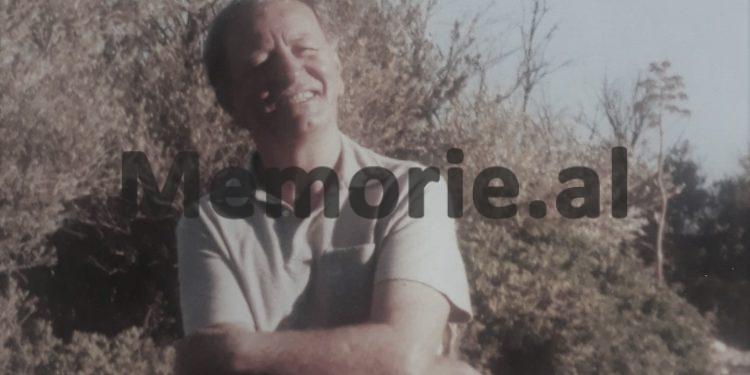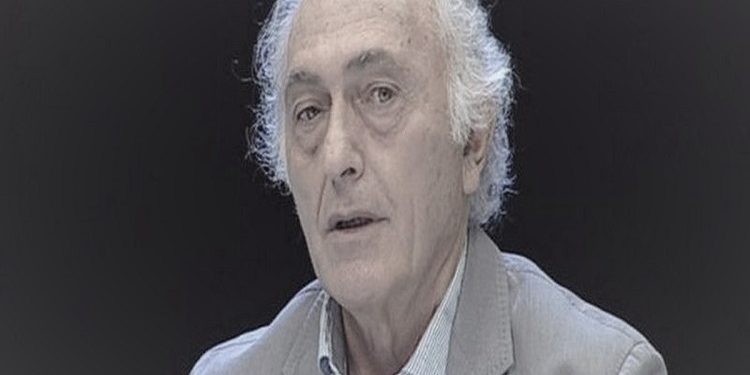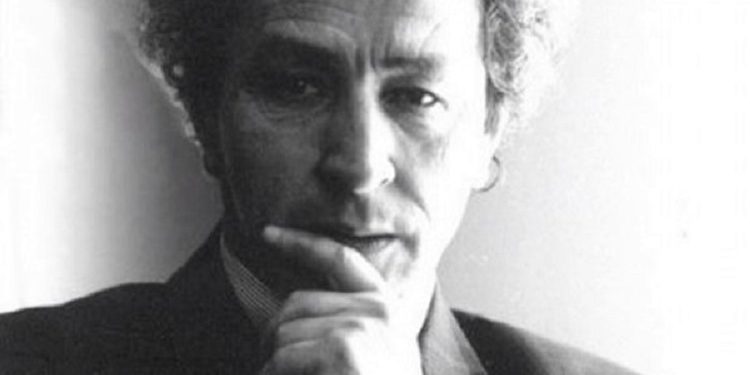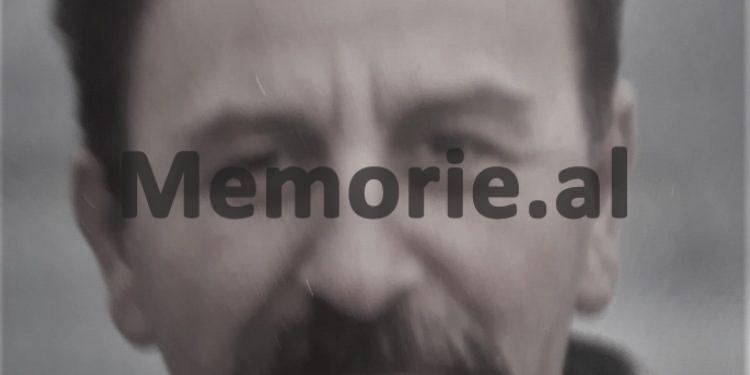By Bashkim Trenova
Part twenty-six
Memorie.al publishes the memoirs of the well-known journalist, publicist, translator, researcher, writer, playwright and diplomat, Bashkim Trenova, who after graduating from the Faculty of History and Philology of the State University of Tirana, in 1966 was appointed a journalist at Radio- Tirana in its Foreign Directorate, where he worked until 1975, when he was appointed journalist and head of the foreign editorial office of the newspaper ‘Zeri i Popullit’, a body of the Central Committee of the ALP. In the years 1984-1990, he served as chairman of the Publishing Branch in the General Directorate of State Archives and after the first free elections in Albania, in March 1991, he was appointed to the newspaper ‘Rilindja Demokratike’, initially as deputy / editor-in-chief and then its editor-in-chief, until 1994, when he was appointed to the Ministry of Foreign Affairs with the position of Press Director and spokesperson of that ministry. In 1997, Trenova was appointed Ambassador of Albania to the Kingdom of Belgium and to the Grand Duchy of Luxembourg. Unknown memories of Mr. Trenova, starting from the war period, his childhood, college years, professional career as a journalist and researcher at Radio Tirana, the newspaper ‘People’s Voice’ and the Central State Archive, where he served until the fall of the communist regime of Enver Hoxha, a period of time when he in different circumstances met many of his colleagues, suckers of some of the ‘reactionary families’, etc., whom he described with a rare skill in a book of memoirs published in 2012, entitled ‘Enemies of the people’ and now brings them to the readers of Memorie.al
Continued from the previous issue
“Enemies of the people”
Prime Minister Berisha described the death of Vladimir Prela as mourning for the Albanian diplomacy!
In the beginning of democracy, Ladi worked for some time in the newspaper “Koha Jonë”, which was very critical of the then president Sali Berisha. I was surprised when I read the words that Prime Minister Berisha said on the occasion of the death of Vladimir Prela. The Prime Minister said: “It is a real mourning for the diplomacy of Albania, which has had to Vladimir Prela one of its most dignified representatives, an honest, dedicated, wise intellectual and official, a diplomat who has made a special contribution for the country and the nation as a whole, a parent, family, a great citizen and friend ”. Then I thought that even Berisha, after all, has the right to change his opinion! Estimates, even public, in completely opposite directions, for different persons, he had made before. Thus, for example, his former opponents, Fatos Nano and Ilir Meta, who he called “criminals” and “godfathers”, were suddenly named by him as “historical leaders of the left”, as “the palace of European integration. Another, described by him as a “coup” general, was also appointed by him as Minister of Defense, etc.
With the departure of Ajeti, Taqo, Fatmir, Ilir and Vladimir, I was left for some time alone with Qako Dango in the Foreign Sector of the newspaper. Then came Aleko Haxhi, Lulzim Çota, Sokol Gjoka and Shkëlqim Beqari. I did not work with them for long. With Aleko and Lulzim something more. Aleko came to the Foreign Sector, having worked for several years in the Economic Sector of the newspaper. He was a highly prepared, disciplined and quality economist at work, with an inexhaustible sense of humor in society. He was amused when he quoted Mao Zedong’s wife, Qian Qin, who, according to him, had said that “the pleasure that power gives you, even sex does not give”! Aleko did not spare compliments to friends. For him as an economist the compliments were “a free investment” from which, however, he had no losses. So he expressed. I have the best memories for all these correct friends and colleagues, who helped me until the last day of my stay in “Zeri i Popullit”, to do the best that task, which was assigned to me.
From “People’s Voice”, after the ’90s, we got five ambassadors!
Although, as I mentioned in one case, the “Voice of the People” was declared a “nursery of the Party cadres”, only after the overthrow of the dictatorship, from this former “nursery” it became possible to leave five ambassadors; Vladimir, Fatmir, Shaban Murati, Sokoli and me. Lulzim also worked for some time in the field of diplomacy, being a spokesman for the Foreign Ministry. Previously, only Ilir Bocka was given the opportunity to move to diplomacy. After staying for several years as ambassador to Bonn of the Federal Republic of Germany, he later became deputy minister and foreign minister, then ambassador again. We met together in Brussels as old friends and colleagues.
From all the journalists of the Foreign Sector of “Voice of the People”, if we exclude Qako Dango, who retired and Taqo Zoto, who became director of the Telegraphic Agency, only Shkëlqim Beqari and Aleko Haxhi did not make a diplomatic career. Splendor immigrated to the United States. Aleko had left the “Voice of the People” for several years and, if I am not mistaken, had moved to the Academy of Sciences. With the beginning of the Democratic Movement in Albania, he came and met me one day in the editorial office of “Democratic Renaissance”. Leko, as we called his friends and colleagues of “Voice of the People”, brought me an article for publication. In this article he wrote about the discrimination that was done to the Greek minority in Albania during the dictatorship. To be honest, I was not convinced of the authenticity of what Aleko wrote. It did not seem to me that the Greek minority was in a more disadvantaged or discriminated position during the dictatorship in relation to the rest of the population. I told this to Alekos too. He objected to me adding later that this was our last meeting and that he would leave forever in Greece. With all my reservations I published Aleko’s article. The next day Aleko left forever with his family for Greece.
From the Foreign Sector of the newspaper “Zeri i Popullit”, as far as I know its historian, except for the case of Jusuf Alibali and that of Paskal Milos, there has not been any other boss or journalist who has been expelled or expelled from the newspaper as unwanted or interned somewhere by the dictatorship. From other sectors, for one reason or another, even without any reason, but simply under different pretexts, even during the years I worked in this newspaper, many journalists were hit.
Fatos Pilkati’s departure from “Zeri i Popullit”, after his father was imprisoned!
I remember Fatos Pilkati. He worked in the Information Office. As a journalist, he never excelled, but evil did not come to him, nor would it come from it. Fatos himself knew this, so he did not worry too much about work. We in the newspaper, in addition to our engagement as journalists, did, more or less, once a month the task of being the newspaper’s duty officer. We stayed until the first issue of the day came out, read it, put the signature and the newspaper went into rotation for multiplication. Fatos, when he was on duty, instead of worrying about making a mistake for which he could answer too dearly, lay down on the office desk, covered himself with a few pages of newspaper and slept soundly!
Fatosi was young and, as boys like him are called in Tirana, “handsome boy”, tall, with big eyes, always smiling, modest. His interests were girls and pistol shooting. Very young, at the age of 21, he together with Aferdita Tushë, Ismail Rama, Beqir Kosova and Ymer Pampuri, represented Albania at the 1971 Munich Olympics. The team also included the “companion” of the State Security, the name of which was never mentioned. It was the first time that Albania participated in the Olympic competitions. Our sports team competed in shooting and weightlifting competitions. The standard pistol shooting competition was attended by 64 representatives from different countries. Fatos Pilkati took 24th place with 546 points. Looking at the results of our team, we say that they were quite normal, even the figures and rankings for Fatos and Ismail Rama were dignified. Ymer Pampuri in weightlifting was a real sensation. Meanwhile, the top leaders of the regime, as was said at the time, had been left disappointed by our shots. In its propaganda the Labor Party gave special importance to the sport of shooting, advertising it as the basic sport. His results should have shown to internal and external enemies that in Albania there were “bullets ready for any enemy”! Fatos and others did not please the leadership of the Party and the state, but he would not be punished for it either.
On October 16, 1980, the dictatorship arrested several high-ranking officials as “enemies of the people,” including Sabri Pilkatin, the former chairman of the capital’s Executive Committee, and Fatos Pilkatin’s father. Some time ago he was interned with his family in Buz i Tepelena. Fatos was first sent to the highlands of Tirana. I do not know what happened next to him, whether he joined the family in Buz or not. It is possible that he stayed in the highlands of Tirana, simply to not allow the “enemies” to be together even in their misfortune, not to allow them to address a lukewarm word of hope to each other, a whisper human, not to be near each other even in the last breath. This was the practice followed in such cases.
I met Fatos at the beginning of the Democratic Movement. He came one day to the “Democratic Renaissance”. He was happy, very happy. Then I do not know how his life went. Maybe he also left Albania forever, to forget forever the years of dictatorial madness, to start, late, a new life, somewhere in a new land, unknown, near unknown people! On the internet I found an address with the name of Fatos Pilkat in the US. Maybe its Fatos, my colleague of “Voice of the People”, convicted just because he had not had the opportunity to choose not to be his father’s son!
After Fatos Pilkati, the “turn” of hitting “Zeri i Popullit”, for Frrok Çupi!
After Fatos, other journalists of “Voice of the People” also suffered. The class struggle knew no empty spaces in any sector of life and in any corner of the country. It even took place fiercely inside the individual! The “voice of the people” could not be an exception. From the first years after the liberation, there were always “enemies” and “traitors”. Thus, after Fatos Pilkati, journalists Frrok Çupi and Mitro Çela would be hit.
If I am not mistaken, from the beginning of 1984, Frroku published in “Zeri i Popullit” the article entitled “Fish is caught in Shengjin and distributed in Ulza”. He criticized there a number of shortcomings of what was then called the Freshwater Fishing Enterprise; it’s extremely poor financial result. Without mentioning the name, the article also talked about the illegal appropriations of the authorities of some central departments, which used state vehicles to be supplied with “fresh fish”. This was, in short, the content of the article, which became the cause of a real ordeal of several years for Frrok Çupi, his wife and two children.
It was then said that the article had been read by the dictator himself. He had previously read other articles by Frrok Çupi and expressed himself with superlatives. This is how he assessed, for example, not so long ago a report, written by Frroku when the ‘People’s Hero’, Baba Myslymi, died. The same thing did not happen with the fish article. He instructed to verify the data treated in the article and to take a stand against the author, if they would not turn out to be true. As a result, Frroku was told in the Editorial Office that he had to appear in the Mirdita District. There he was received by the First Secretary of the District Party, Gjela Biba, with the words: “You are an enemy of the Party, you do not deserve to be its journalist. You will go to Spaç, not to prison, because the Party is generous, but you will go to the Geological Enterprise, to work and be re-educated among geologists “.
Frrok was not even asked to explain. He thus started working at the Geological Enterprise in Spaç, leaving in Tirana his family shocked by what had happened, but more about what he could achieve later and that no one could know how far he would go! There Frroku spent two years full of difficulties near the drilling rig, in the cold of winter, away from family and friends of the Editorial Office, that when they rarely saw him in Tirana, they pretended not to see him. “The coldness of the friends I worked with in the newspaper, Frrok Çupi will remember years later, became icy than the ice and the winter cold of Spaç …!”I want to believe that not a few of them were afraid.”
After two years, Frrok was given a “favor”, returned to Tirana, but not in his profession as a journalist. He was sent to work in the Artistic Enterprise “Migjeni”, in the pipe department. Then, when the dictatorship was feeling the end and demagoguery was pouring in abundantly to show that it was changing in nature, he was offered a job at the Folklore Institute. Initially, the copyright was not restored. He later republished in “Zeri i Popullit”.
With the launch of the Movement, which overthrew communism in Albania, Frroku became the first editor-in-chief of the newspaper “Rilindja Demokratike”, the first newspaper in opposition to the regime. Under unclear circumstances, he will be removed from the “Democratic Renaissance”. The chairman of the Democratic Party, Berisha, in a meeting where Mitro Çela and I were also present, almost openly accused Frroku as a collaborator of the State Security. “Democratic Renaissance”, several times in its various articles, more directly, will repeat this accusation of Berisha. Frroku will become at that time one of the most stubborn opponents of Prime Minister Berisha, to return, after a few years, to his ally.
Mitro Çela was sentenced and left Tirana as a correspondent for Gramsh and Librazhd!
After Frrok, in November 1985, Mitro Çela, former head of the Economic Sector of the newspaper, also suffered. The measure taken against him was much easier, compared to what was given to Frrok. “I shot lucky,” says Mitro humorously. “The Central Committee put its hand on the heart.”
At that time I was no longer working for “Zeri i Popullit”, but as Mitro told me, he was fired from Tirana and sent as a correspondent for the newspaper “Bashkimi” for Elbasan, Gramsh and Librazhd. A few months ago Mitro was highly praised by the Central Committee of the Party for the articles he had published. One controversial article was enough and he was punished.
In fact, Mitro himself, whenever he spoke about the measure given to him, did not express himself quite clearly. He has jokingly said this: Frroku was punished for some fish, while he was punished for some fig jam for export. In a casual meeting I had with him in those days, he told me that it was the editor-in-chief, Arshin Xhezo, who was removing him from the newspaper. He told me that he had also said this to Miti Tona, the head of the Press Directorate in the Central Committee of the Party, adding that Arshin Xhezo was thus removing from the newspaper one by one the people he did not like, as he had done even with me.
I do not know exactly how many years Mitro Çela stayed as a “Union” correspondent. One day, he was sent back to Tirana and appointed head of the economic sector of this newspaper. As he writes in his memoirs, in December 1990, when the Democratic Movement had just begun, Nexhmije Hoxha, the dictator’s widow, said that the Labor Party had designed Mitro as its candidate for MP. In the by-elections, Mitro becomes a member of parliament for the Democratic Party, the regime’s first opposition party. One of our mutual colleagues, Mitro, said in those days that he had even been nominated for Secretary of the Central Committee of the Labor Party. Mitro became one of the members of the Democratic Party leadership, but without submitting his membership card to the Labor Party. He jokingly said, as always, that the card had been given to him by Ramiz Alia, the dictator’s successor, so he could hand over the card only to him!
We met Mitron again as colleagues in the “Democratic Renaissance”. We did not work together for long. Initially, when the newspaper was in opposition and the Labor Party was in power, Mitro left the newspaper for some time and was hospitalized. We never found out why he was hospitalized! He himself told us that doctors could not determine his diagnosis. He would then remain in the newspaper for some time, until the second pluralist election, beginning in 1992.
In the second pluralist election, Mitro openly said in the editorial office of “Democratic Renaissance” that he would be the post-election prime minister. In fact, Alexander Meksi was elected prime minister. Mitro, as he recounts in his memoirs, joined the first faction, which was formed in the Democratic Party, called the “Motionist”. Members of this faction left the Democratic Party and formed another political party. Mitro says that he too was a “motionist”, but did not leave like the others; he stayed in the Democratic Party at this time in power.
Living in Belgium I do not know well how Mitro’s later years went. I know that he works in a private television critical of the Democratic Party and the government of Prime Minister Berisha. I also know that he publishes his memoirs, always with the same humor, which creates a kind of confusion between truth and fantasy. He himself said that he publishes them “to take advantage of press fees”, that is, to contribute somehow to his finances! In the electronic press I read about Mitron: “From such types of politicians you can never expect something serious, dedicated to have demanded sacrifice, self-denial, deprivation, suffering, pain. They just crawl like those little frog larvae, with some meal jokes, crippled smiles and a soft-spoken word that occasionally bites the croup…. “Dignity is light years away from them.” In the written press, in the newspaper “Korrieri”, I read an article by the well-known analyst Fatos Lubonja, entitled: “Work of Batakçinjsh”.
The article, published on December 28, 2009, mentions by name the two leaders of the main political parties of Albania, the Democratic Party and the Socialist Party, as well as two names of members of the Municipal Council of the capital, also journalists, among them Mitro Çela. The four are mentioned for the illegal privatization or sale of 1,300 square meters of land in the center of the capital. “As a story of privatizations,” writes the author of the article, “it is so commonplace that perhaps the only value it takes to take the trouble to write it is to leave one more testimony to the grandchildren of these thugs.” to one day know how their grandparents got rich at the expense of all Albanians, how their political grandparents had public work simply as an opportunity to get bribes and benefits from business grandparents, that their business cannot they built without bribes and that these businesses could flourish even better with the help of journalist grandparents, who instead of working as journalists, did the work of a realtor ”! I would very much like the above thoughts to be hasty or wrong. However, for one thing I am sure; Mitro is not much affected by articles or opinions.
“Radha” by Xhevahir Spahiu, to be punished by “Zeri i Popullit”!
On the occasion of the 20th anniversary of the newspaper “Rilindja Demokratike”, Mitro Çela, Frrok Çupi and some others, who published its first issue, were decorated by Prime Minister Sali Berisha with the “Medal of Gratitude”. Certainly medals do not affect him much either. Xhevair Spahiu is one of the journalists who were expelled from “Zeri i Popullit”. I met him when I started working as a journalist in the editorial office of this newspaper in 1975. If I am not mistaken, he was a journalist of the Ideological Sector. I was impressed by his attitude in one of the first meetings of the newspaper staff, in which I participated. I’m not sure, it seems to me that it was from the usual meetings, which were called “criticism of the week”, ie a kind of evaluative and critical analysis regarding the materials published during the week in “Zeri i Popullit”.
Xhevairi got up to speak. He basically asked to leave the newspaper because, as he said, he did not feel valued for his work. I looked like a passionate guy. When I was a student, I had read some of his poems. So I had created the same sympathy for him. The words he said seemed to me derived from his poetic world and not real. However, I was new to the newspaper and knew neither the people nor the reports at work, so I did not speak. At the end of the meeting, I stopped Xhevair Spahiu and told him honestly: “Why are you talking like this. Comrade Enver himself said the best words about the articles. What greater appreciation does it require”?! Xhevairi gave me the right, at least that’s how it seemed to me, but he did not prolong the conversation, he left together with the others.
In fact, Xhevairi has been praised by the dictator for his articles, but he has also been criticized for some of his poetry. As far as I remember, on two occasions Enver Hoxha criticized Xhevairi, saying that he was “oriented by Sartre’s anti-Marxist philosophy, he copied it, he made it his own, thinking that others do not know what Sartre is.” and his philosophy ”! It seemed unbelievable to me that Xhevairi knew Sartre and existentialist philosophy at the time. None of our generation knew Sartre, nor did we have the opportunity to know him or any other contemporary philosopher. In Albania at that time, the usual packaging bags, which came from the West, were kept at the customs, if two or three words with a journalistic character were written on them. This was done to defend against bourgeois ideology! Thus, there can be no question of Sartre or his publications.
In fact, from the criticized poetry, the verses are quoted: “I am who I was not; I will be who I am not”! To me even today, the verses quoted convey a dialectical reality, even in line with Marxist dialectics. The dictator’s word was, however, indisputable. Moreover, it should be added that usually, such a critique was enough to forget the name in the field of publications and to climb seven captured mountains, to make friends with them. Fortunately, this did not happen to Xhevair./Memorie.al
The next issue follows
















